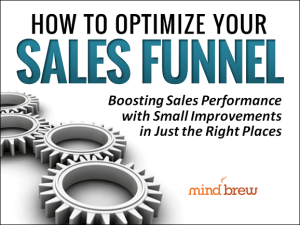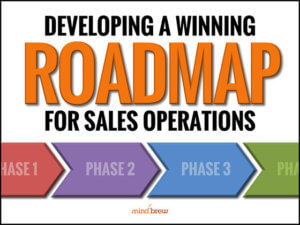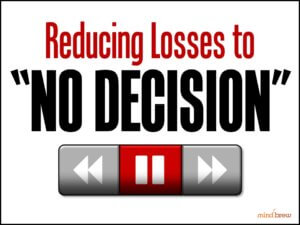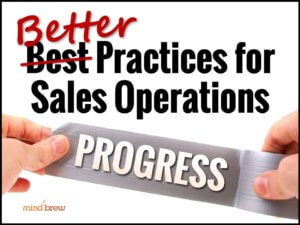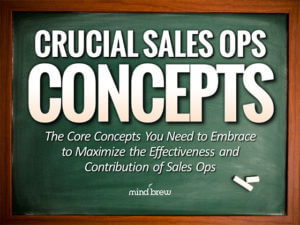In many companies, the Sales Operations function was initially established in a somewhat reactive way, as a response to clear and present tactical needs that weren’t being met. In other companies, the function was established as part of a more deliberate effort to enhance organizational capabilities and competitiveness.
But no matter how it came into existence, Sales Operations is usually a relatively new function in the overall corporate structure. And as a result, many Sales Ops teams are defining and redefining their roles and contributions on an ongoing basis.
From our perspective, one of the most potent evolutionary steps in this process is the transition from “administration” to “optimization”.
Early on, it’s common for Sales Ops teams to focus heavily on administering and supporting the existing sales processes and systems. In this stage of development, Sales Ops is all about efficiency and consistency—more efficient and timely pipeline reporting, more consistent sales processes, better data going into the CRM systems, faster turnaround on RFPs and proposals, etc.
Over time, however, observant Sales Ops teams will often notice that the existing systems and processes really aren’t all they’re cracked up to be. They’ll see certain performance trends or patterns and recognize opportunities for improvement. And that’s when these teams will begin to make the transition from simply administering the existing sales systems and processes to actually optimizing them for greater effectiveness at-scale.
For example, in “How to Optimize Your Sales Funnel” we demonstrate how Sales Ops is in a position to do so much more than just generate reports about what’s happening in the sales funnel. They’re in a position to analyze the data and figure out what’s working and what’s not. They’re in a position to identify and investigate positive and negative outliers. And, they’re in a position to recommend and implement systemic improvements and optimizations that can increase the effectiveness of the entire sales force.
We’ve seen that this transition will usually happen on its own over time. But here’s the thing…you don’t have to wait for it to happen. You can make it happen any time you want by just adopting a different mindset and asking some different questions.

